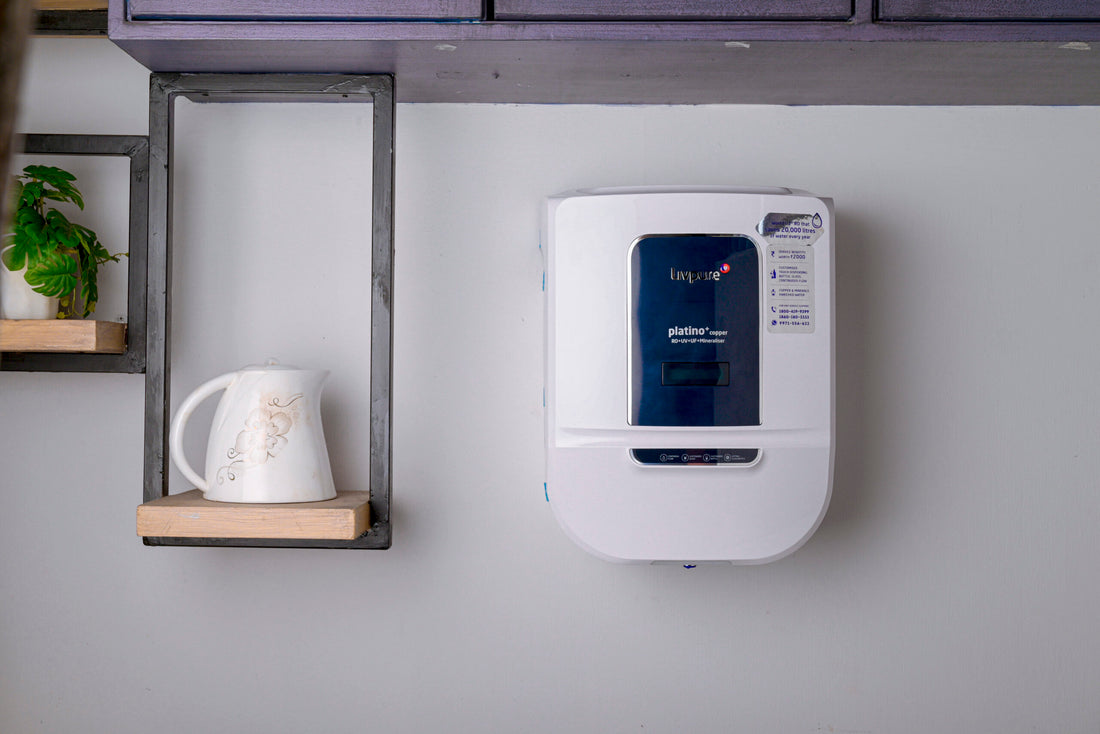Purifying drinking water is a top priority for anyone who lives in an area where sickness may spread from person to person. In this modern world, illnesses such as cholera and typhoid are becoming more frequent, and purifying drinking water has become even more critical. Fortunately, modern technology has made it possible to purify water so efficiently that almost no energy is needed. When combined with sophisticated maintenance and operational protocols, this means that a small water purifier can be used effectively without detracting from the efficiency of other household appliances.
There are many various types of water purifiers available today, each with a different size, efficiency, technology, and power requirement. How much power do these water purifiers actually use, though?
Often, customers ponder upon this question while buying any electrical appliance for their home. With so many different types of appliances being used at home, it is important to minimize electricity consumption. Not only do you get a big bill of electricity at the end of the month, but use more electricity than is required. With a shortage of electricity in most parts of India, there’s a need for energy-efficient and non-electric appliances, especially in the case of water purification systems. As it is a day-to-day essential appliance at home to access pure drinking water.
Electricity consume by water purifier
The normal power consumption of a water purifier is between 25 and 60 watts per hour. For a minimum of 5 hours per day, a machine is used at home. You don't need to worry that water purifiers will increase your monthly electricity cost because they only use a small amount of electricity if used efficiently.
It is important to remember that maintaining of the RO is vital in case of power-saving.
The Different Types of Water Filters
There are many different types of water filters, and the most common ones are chemical, mechanical, and biological. Some water filters also come with a pre-filter to remove sediment and chemicals from the water before treatment. A mechanical water filter is often referred to as a household water Purifier. A biological water filter is often referred to as a home water purifier. Based on the water purifier you are using at home, your power consumption will differ. It also depends on other factors, like how much it is used, what the features are, etc. You also find water purifiers in the market, that do not use electricity to purify the water. UV or UF water filters do not require electricity to operate.
Examples of water purification systems that don’t require electricity:
- UV technology
- UF technology
- Gravity-based filters
- Carbon filters
How much electricity does a UV water filter use?
UV water filtration technology requires no electricity to operate. Similar to a UF water filter, a water filtration system using UV radiation for purification does not require electric power. However, UV technology is combined with other water purification technologies like RO or ion exchange, and then the machine needs electricity to purify the water.
How to Buy a power efficient Water Filter?
When shopping for a water filter, consider the type and brand of the filter and make sure that it is appropriate for your water supply.
1. Power saving:
If you are buying a biological water filter, you will also want to make sure that it is capable of removing parasites and bacteria, which is why you should also look for a biological water filter. However, for the poor quality of water, you will need to get a RO system installed at your home. Not only will a RO water filter consume more energy than a biological filter, but also discard a significant amount of hard water after purification.
Therefore, Livpure water purifiers feature HR70 which helps maximise the conservation of water. Machines with HR70 technology can save up to 20000 litres of water. This feature gives an edge to our product over its competitors.
2. Capacity:
Another thing to consider is the capacity of the water filter: larger capacity filters are usually more expensive and energy-consuming. You will also want to make sure that the filter is designed to be installed in the water supply: if it is not, then it will not work well with your water purifier.
3. Advanced purification:
Most purification systems employ advanced technology to purify the hard water. This is an essential feature that helps in giving you clean and safe drinking water. It requires energy to perform water purification of contaminated water. So, purifiers use a lot of electricity? No. With advanced features machines also have high efficiency and optimization power. Hence, electricity consumption is minimized.
4. Display features:
Water purification machines with advanced LED displays use electric power to indicate alerts and notifications. However, it is also a really useful feature in order to maintain your water purification system.
Conclusion
Water quality is important, and it is important to maintain it at optimal levels by using a water filter. A water filter should be able to remove bacteria and protozoa, as well as traces of minerals and chemicals. Water filters are easy to use and maintenance is minimal. Most water purifiers are designed to treat the water you put in the tank while optimising the energy. In order save money and power consumption, invest in an energy-efficient appliance. Looking for a water purification system? Check our best water purifiers online here.




